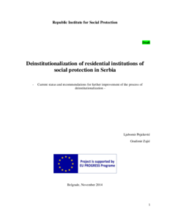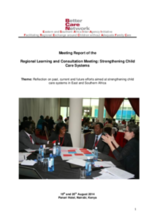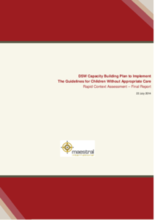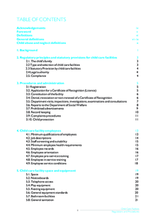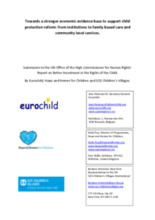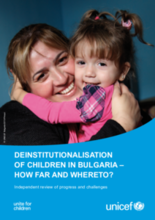Displaying 411 - 420 of 691
This report gives an overview of implemented activities in the process of deinstitutionalization, identifying the main obstacles, effects, and achieved results. The overall objective of the report is to achieve greater understanding of the progress and shortcomings of the process of deinstitutionalization and transformation of social protection in Serbia, and to analyze relevant policies that will provide input for the creation of new measures for further support of the reform process of social protection in Serbia.
This article argues that orphanage voluntourism fuels the displacement and trafficking of children from their families in Nepal and their unnecessary institutionalisation.
This video features a segment of a talk on the effects of care environments on children, hosted by the Christian Alliance for Orphans. The key speakers featured include Dr. Kathryn Whetten & Dr. Charles Nelson, who discuss the Positive Outcomes for Orphans study (POFO) and the Bucharest Early Intervention Project (BEIP), respectively.
This report provides an overview of a two-day regional consultancy on strengthening child care systems in Eastern and Southern Africa.
This Context Assessment, produced by Maestral International, aims to collect and review all relevant information to support the development of the Department of Social Welfare’s (DSW) institutional capacities to execute the new framework for alternative care in Liberia.
The Heads of State of the Caribbean region endorsed the Call to Action to end the placement of children under three years of age in residential care institutions at the 35th CARICOM conference.
In this chapter of the Handbook of Child Well-Being, the authors review the findings from research on the cognitive and social-emotional development of children growing up in institutions, foster care and adoption.
This document contains a set of regulations and procedures which the Zambian Government has established as the “Minimum Standards of Care for Child Care Facilities.”
Eurochild contributed to the UN Office of the High Commissioner for Human Rights' report “Towards a better investment in the rights of the child” with a joint submission with Hope & Homes for Children and SOS Children’s Villages International.
This Review, commissioned by UNICEF Bulgaria, is aimed at informing the recommendations for the Bulgarian Government’s Action Plan for the implementation of the National Strategy ‘Vision for Deinstitutionalisation of Children in Bulgaria.’

